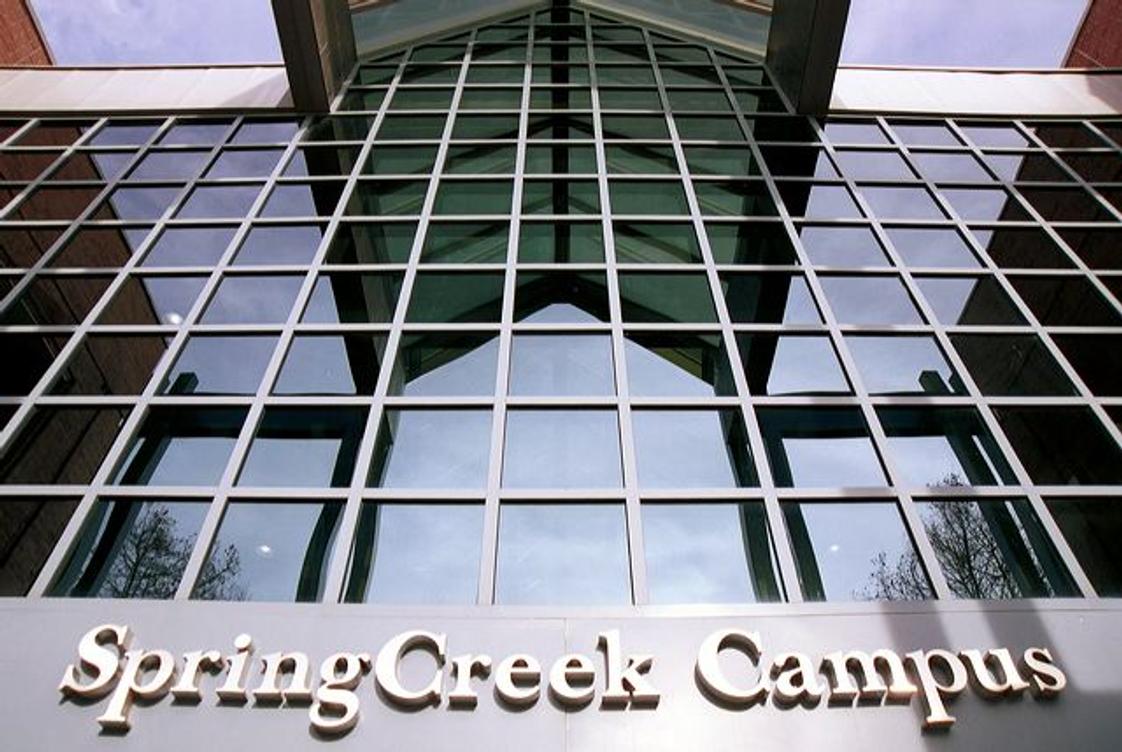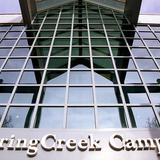- Collin College is a student and community centered institution committed to developing skills, strengthening character, and challenging the intellect.
School Highlights
Collin County Community College District serves 50,685 students (26% of students are full-time).
The college's student-teacher ratio of 29:1 is higher than the state community college average of 23:1.
Minority enrollment is 59% of the student body (majority Hispanic and Asian), which is less than the state average of 74%.
Quick Facts (2026)
- Enrollment: 50,685 students
- In-state tuition: $2,344
- Out-state tuition: $4,144
- Student-teacher ratio: 29:1
- Minority enrollment: 59%
- Source: Integrated Postsecondary Education Data System (IPEDS)
Top Rankings
Collin County Community College District ranks among the top 20% of public schools in Texas for:
Category
Attribute
Affordability
Diversity
Community Size
Debt For Students
School Overview
The teacher population of 1,726 teachers has stayed relatively flat over five years.
Collin County Community College District
(TX) Community College Avg.
Carnegie Classification
Baccalaureate/Associate's Colleges: Associate's Dominant
Baccalaureate/Associate's Colleges: Associate's Dominant
Institution Level
Four or more years
At least 2 but less than 4 years
Institution Control
Public
Public
Total Faculty
1,726 staff
262 staff
School Calendar
Student Body
The student population of Collin County Community College District has grown by 43% over five years.
The student-teacher ratio of 29:1 has decreased from 38:1 over five years.
The Collin County Community College District diversity score of 0.74 is more than the state average of 0.70. The school's diversity has grown by 7% over five years.
Total Enrollment
50,685 students
4,931 students
Student-Teacher Ratio
29:1
23:1
# Full-Time Students
13,400 students
909 students
# Part-Time Students
37,285 students
4,022 students
# Enrollment Undergraduate
506 students
403 students
# Full-Time Undergraduate Students
13,400 students
890 students
# Full-Time Graduate Students
n/a
40 students
# Part-Time Undergraduate Students
37,285 students
4,166 students
# Part-Time Graduate Students
n/a
47 students
Total Dormitory Capacity
237 students
252 students
% American Indian/Alaskan
n/a
n/a
% Asian
16%
6%
% Hispanic
21%
46%
% Black
12%
13%
% White
41%
26%
% Hawaiian
n/a
n/a
% Two or more races
5%
3%
% Non Resident races
2%
2%
% Unknown races
3%
4%
Diversity Score
0.74
0.70
College Completion Rate (Students who graduate in less than 4 years)
16%
22.76%
College Completion Rate (Students who graduate in 4 years or more than 4 years)
18%
34%
Average Graduate Earnings (10 Years)
$40,400
$34,600
Tuition and Acceptance Rate
The public in-state tuition of $2,344 is less than the state average of $3,764. The in-state tuition has declined by 21% over four years.
The public out-state tuition of $4,144 is less than the state average of $6,054. The out-state tuition has declined by 17% over four years.
In-State Tuition Fees
$2,344
$3,764
Out-State Tuition Fees
$4,144
$6,054
Tuition Notes
$67.00 per credit hour for Texas and Collin County residents
% Students Receiving Some Financial Aid
57%
84%
Median Debt for Graduates
$7,560
$10,765
Median Debt for Dropouts
$4,000
$5,500
Acceptance Rate
n/a
84%
Source: 2024 (or latest year available) Integrated Postsecondary Education Data System (IPEDS) , School Administrators
School Notes
- Since offering its first classes at area high schools in 1985, Collin College has expanded to serve more than 51,000 credit and continuing education students each year. The only public college in the county, Collin College offers more than 100 degrees and certificates in a wide range of disciplines. With six locations, Collin College has firmly established itself as the premier academic institute of North Texas. Collin College offers a variety of plans designed to prepare students for a college or university degree. Some options include pursuing an associate degree, completing the core curriculum or a field of study, or beginning coursework in a pre-professional program. The associate of arts, associate of applied science, associate of arts in teaching and associate of science degrees are designed for students planning to transfer course credits to a baccalaureate degree program at a college or university. In addition to core curriculum, Collin offers extensive training in the health professions and public service fields, including nursing, respiratory therapy, dental hygiene, emergency medical services, fire science, and law enforcement. Certificates can be earned in a wide range of high-tech fields, as well. Augmenting the computer networking technology program, Collin is one of six national Cisco Certified Training Centers. The Courtyard Center for Professional and Economic Development (CYC) opened in 1993. Located on Preston Park Boulevard in Plano near the intersection of Park and Preston, the CYC complex houses the Continuing Education and Workforce Development Division, the Small Business Development Center and the Business Solutions Group, which provides customized training to area businesses. Courses offered at CYC include career development, real estate, contract and corporate training, and Seniors Active in Learning (SAIL). Collin County Community College District is accredited by the Commission on Colleges of the Southern Association of Colleges and Schools to award associate degrees and certificates.
Frequently Asked Questions
How much does Collin County Community College District cost?
Collin County Community College District's tuition is approximately $2,344 for In-State students and $4,144 for Out-State students.
What is Collin County Community College District's ranking?
Collin County Community College District ranks among the top 20% of community college in Texas for: Least expensive tuition, Diversity in US community colleges, Largest student body and Least debt for graduating students.
Recent Articles

Community College Policies and Financial Aid Guide 2026
A 2026 guide to community college policies and financial aid, including FAFSA updates, state aid, tuition rules, and smart planning tips.

Get Better Grades in Community College by Being Social (2026 Update)
Learn how being social in community college boosts grades, retention, and career success. Updated 2026 strategies for academic achievement.

Navigating Community College as an Adult Learner in 2026
A practical 2026 guide for adults returning to community college, covering admissions, financial aid, career planning, and flexible learning options.

















